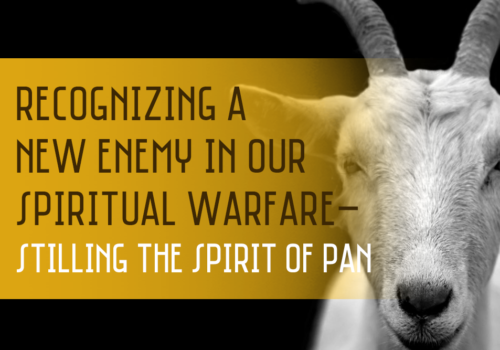With the dramatic way Scripture introduces Elijah,
“And Elijah the Tishbite, who was of the inhabitants of Gilead, said unto Ahab, As the LORD God of Israel liveth, before whom I stand, there shall not be dew nor rain these years, but according to my word” (1 Kings 17:1 KJV),
it is easy to think there was no preparatory work on Elijah’s part no initial history of the prophet shared. It’s as if, on some random day, Elijah wakes up and decides to confront the wicked king.
However, I don’t think that is how it happened then, nor will it happen in an Elijah day now.
James gives us a hint as to the necessary cornerstone that Elijah built upon; and what today’s Elijahs will possess.
It is known as passion.
“Elias was a man subject to like passions as we are, and he prayed earnestly that it might not rain: and it rained not on the earth by the space of three years and six months” (James 5:17 KJV).
Passion is defined as: “being affected in the same way as another, subject to the same incidents, of like infirmities, subject to the same frailties and evils.”[1]
I believe that Elijah had such a passion for God that he was affected by the national sin just the way the Lord was: God hates sin, and Elijah was subject to that very same feeling.
Notice “About fifty-six years had passed from the disastrous hour when the once great and firmly united kingdom of Solomon had been separated, through the revolt of the ten tribes, into its two parts, and the date—B.C. 919—when Ahab ascended the throne of Israel, as distinguished from Judah. Six kings between the date of the division of the tribes and the appearance of Elijah, with the seventh [Ahab] now on the throne.”[2]
Elijah’s age as of 1 King 17:1 is unknown, yet it is safe to say he was aware of the division between Israel, the evil kings, and, most assuredly, Ahab’s abominations,
“And Ahab the son of Omri did evil in the sight of the LORD above all that were before him. And it came to pass, as if it had been a light thing for him to walk in the sins of Jeroboam the son of Nebat, that he took to wife Jezebel the daughter of Ethbaal king of the Zidonians, and went and served Baal, and worshipped him. And he reared up an altar for Baal in the house of Baal, which he had built in Samaria. And Ahab made a grove, and Ahab did more to provoke the LORD God of Israel to anger than all the kings of Israel that were before him” (1 Kings 16:30-33 KJV).
Thus, I believe that Elijah’s passion for the Lord was such that in his time of prayer (remember v. 1, …before whom [the Lord] I stand), the Lord spoke to him; the disgust and disappointment of Israel’s sin felt by the Lord became the burden of Elijah, and he became His voice.
But God’s voice was more than Elijah to Ahab; it was God to Baal for the benefit of God’s people.
“Elijah, through confronting Ahab in this manner, began the process of neutering Baal, the Canaanite god of storms and fertility. In the myths of Ugarit, he is described as the one who waters and provides bread and who defeats the forces of death and famine…. By stopping the rain and dew, the prophet effectively rendered impotent both Baal and his priesthood.”[3]
Like Elijah, in an Elijah day, there will be:
• A passion for prayer
• A passion of the Lord
• A hatred for national sin
• A realization that is not person versus person, but the Everlasting God versus the prince of this world.



